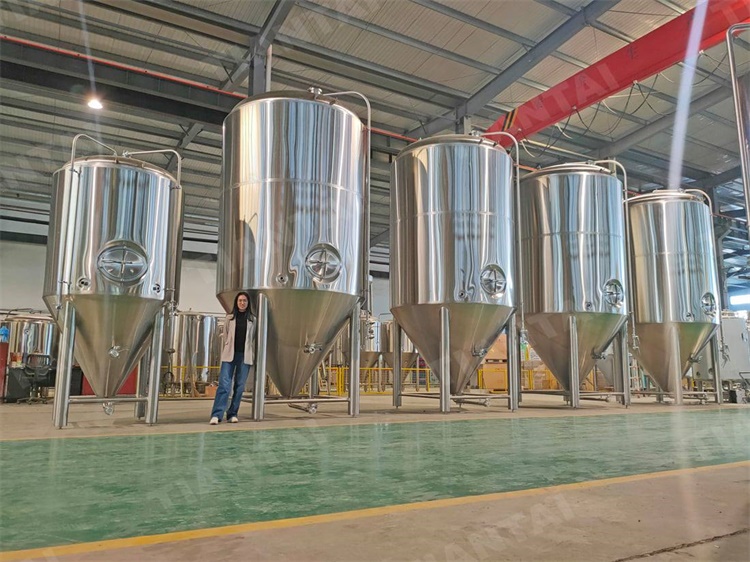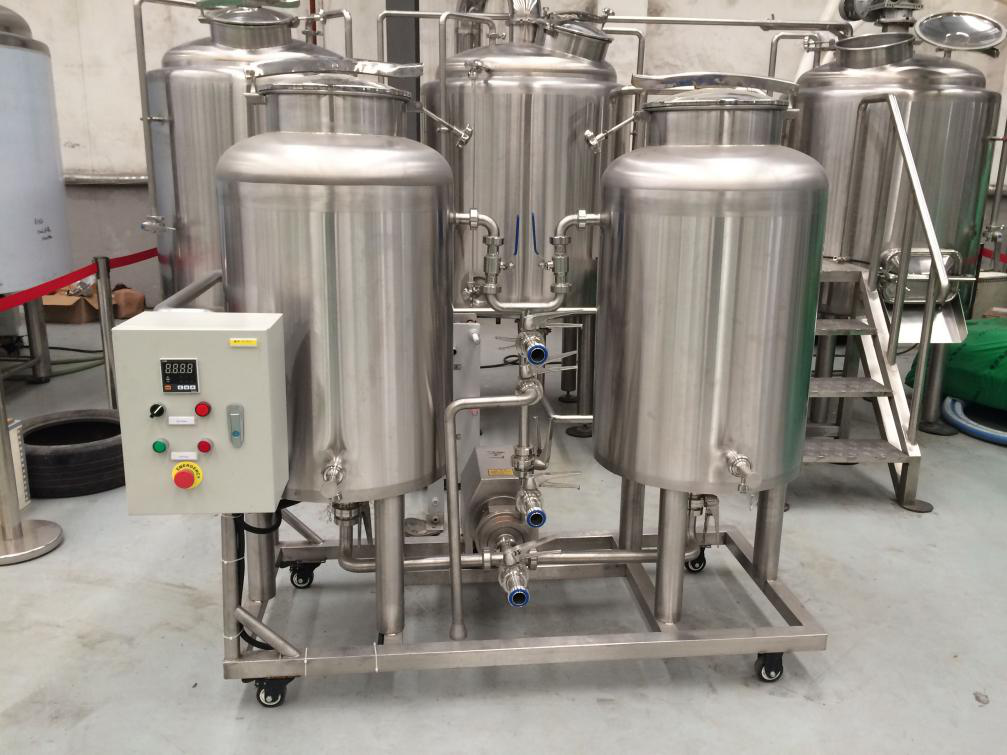Scale: Home brewing equipment is typically designed for small-scale production, ranging from 1 to 10 gallons (3.8 to 38 liters) per batch. On the other hand, commercial brewery equipment is built for large-scale production, ranging from hundreds to thousands of gallons (thousands to tens of thousands of liters) per batch.
.jpg)
Complexity: Home brewing equipment is generally simpler and easier to use compared to commercial brewery equipment. It is designed to accommodate the needs of individual hobbyists or small groups of brewers. Commercial brewery equipment, on the other hand, is more complex and sophisticated, often involving automated processes, advanced controls, and larger vessels.
.jpg)
Control and Automation: Commercial brewery equipment incorporates advanced automation and control systems to regulate and monitor various stages of the brewing process. This includes precise temperature control, automated mashing, programmable recipe management, and fermentation monitoring. Home brewing equipment typically relies more on manual control and monitoring, although some advanced home brewing systems offer limited automation features.
Capacity: Home brewing equipment generally has a limited capacity, allowing for smaller batch sizes. Commercial brewery equipment is designed to handle larger volumes and often includes multiple fermentation vessels, large mash tuns, and larger boiling kettles.
Efficiency: Commercial brewery equipment is optimized for efficiency, aiming to produce large quantities of beer with consistent quality in the most cost-effective manner. It often includes features like heat exchangers for rapid cooling, high-capacity boilers, and efficient filtration systems. Home brewing equipment may not prioritize the same level of efficiency due to its smaller scale and focus on experimentation and personal enjoyment.
Quality Control: Commercial breweries often have rigorous quality control measures in place to ensure consistency and adherence to specific beer styles. They invest in laboratory equipment for yeast propagation, pH and gravity measurements, and microbial testing. While home brewers can perform some quality control measures, they generally have fewer resources and rely more on sensory evaluation and personal taste preferences.
Licensing and Regulatory Requirements: Commercial breweries are subject to various licensing and regulatory requirements imposed by local, regional, and national authorities. These requirements can include permits, inspections, and adherence to specific standards for sanitation, labeling, and packaging. Home brewers, depending on their location, may have more relaxed regulations and fewer legal obligations.
It's important to note that these differences are not absolute, and there can be variations in equipment and practices between different home brewers and commercial breweries. Additionally, some advanced home brewing systems may incorporate certain features and capabilities found in commercial brewery equipment, blurring the lines between the two to some extent.
If you are interested in any beer brewery equipment, please feel free to contact us:
Ivy Liang(Sales Director)
Email: [email protected]


.jpg)



Get In Touch